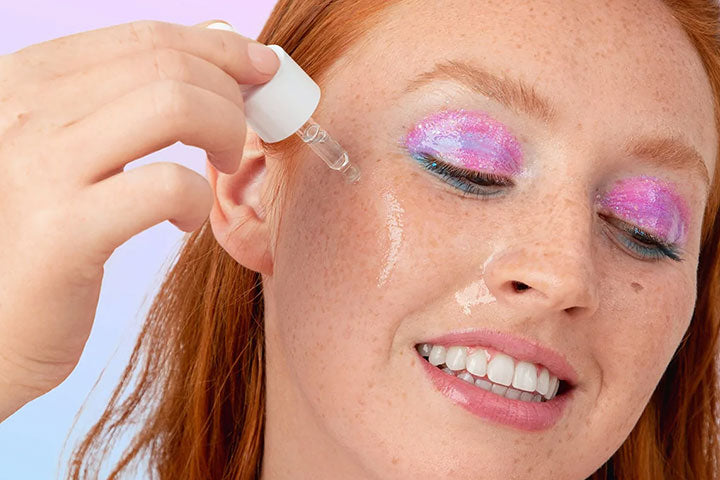Your Guide to Treating Eczema

Eczema is a common skin condition that affects 1 in 10 people in the United States. Fortunately, you can find relief in both prescription and over-the-counter topical and oral eczema treatments.
Here’s your guide to treating eczema to live a more comfortable life.
WHAT IS ECZEMA (ATOPIC DERMATITIS)?
Atopic dermatitis (eczema) is a chronic skin condition that makes your skin red and itchy. It can occur at any age but it’s most common in young children. Eczema is a long-lasting condition that cannot be cured, but it can be managed with certain treatments, which help relieve irritation and prevent the condition from becoming worse. It may also be accompanied by asthma or hay fever.
ECZEMA SYMPTOMS
Symptoms of eczema can vary widely from person to person. However, these are the most common symptoms associated with atopic dermatitis.
- Dry skin
- Itching
- Red to brownish-gray patches on the skin
- Small, raised bumps
- Cracked, scaly skin
Raw, sensitive skin
Living with eczema isn’t easy, and can be quite uncomfortable. Fortunately, there are plenty of Eczema treatment options to make your skin and your life a lot more comfortable.
HOW TO TREAT ECZEMA
Whether you’ve got mild or severe eczema, here are some of the best ways to manage your flareups and keep your skin happy.
#1: Apply Rich, Oil-Based Moisturizers
Since dryness is one the most common symptoms of eczema, it’s important to keep your skin moisturized to prevent it from drying out further. People with eczema have a weak skin barrier, which makes it difficult for the skin to retain moisture. By moisturizing the skin regularly, you help to hydrate it, strengthen the skin barrier, and ward off irritants that can make eczema worse.
Dermatologists suggest applying an oil-based cream or serum (or both) daily to create a barrier that stops water from leaving the skin.
Look for moisturizers, serums, or ointments that come in jars rather than lotions that come out of a pump, as these are more likely to contain oil-based ingredients. Some of the best skincare ingredients to look for include coconut oil, jojoba oil, shea butter, and petroleum jelly.
We recommend Rainbow’s Hydrate Serum. With a base of jojoba oil, blended with hyaluronic acid, vitamin B5, and aloe, this skin quenching serum provides intense hydration and soothing effects for quick relief. Apply it under an oil-based cream for further hydration.
#2: Try Topical Steroids
Topical steroids are medications that work by blocking the chemicals that set off the immune system‘s response to irritation, which causes eczema flareups. They’re applied directly to the skin to help relieve inflammation.
Topical corticosteroids and hydrocortisone are available over the counter or your doctor may prescribe them. They can help to reduce inflammation, alleviate allergic reactions, ease irritation, and reduce itching.
It’s best to speak to your dermatologist or health care provider for the best topical treatment options when it comes to steroids to ensure it is safe and effective for your skin.
#3: Consider Wet Wrap Therapy
Wet wrap therapy is a treatment that involves applying wet dressings to your skin to soothe, cool, and rehydrate it. To do it at home, first soak a soft washcloth or gauze in warm water, then apply to the affected areas of your skin. Cover with a dry cloth and leave it there for several hours or overnight. This treatment can help with itching, redness, and irritation while making topical treatments work better. It’s definitely worth a try if topical creams or medications don’t help. Plus, it offers quick relief.
#4: Pop an Oral Antihistamine
If allergens are behind your eczema flareups, the derms recommend taking certain antihistamines for relief. Some of the best for the job include Benadryl (diphenhydramine), hydroxyzine, and Unisom (doxylamine succinate).
Antihistamines may also help prevent nighttime scratching, which can make eczema worse and possible cause infections.
#5: Soak in a Bleach Bath
It might sound painful, but bleach baths may be an effective way to relieve eczema symptoms. A bleach bath is exactly what it sounds like: a bath made with a small amount of bleach to kill skin infections and bacteria, and reduce itching and redness. Dermatologists say it may be helpful in preventing eczema flares.
For best results, add 1/4 cup to 1/2 cup of bleach to a 40-gallon bathtub filled with warm water. Soak the affected areas of skin for about 5-10 minutes. If your skin doesn’t tolerate the bleach bath well, rinse your skin immediately. After soaking in the bleach bath, rinse thoroughly, pat skin dry, and apply moisturizer generously.
#6: Give Phototherapy a Try
Phototherapy (light therapy) uses ultraviolet light to treat moderate to severe eczema.
Ultraviolet light can help reduce symptoms in eczema by reducing the inflammatory response in the skin. Again, speak to a dermatology professional before getting the treatment to discuss side effects and whether it’s suitable for your skin.
#7: Try Topical Calcineurin Inhibitors (TCIs)
TCIs are a category of prescription medication for eczema that includes Protopic (tacrolimus) and Elidel (pimecrolimus). They control inflammation and flareups by suppressing the immune system.
ECZEMA HOME REMEDIES
Most cases of eczema — especially severe cases — respond best to oral and topical medication. However, you can also try these home remedies to soothe and prevent eczema flares.
- Avoid cleansers, soaps, lotions, and detergents that contain alcohol, fragrances, dyes, and other irritants.
- Use a humidifier.
- Moisturize daily.
- Rule out any food allergies with your doctor.
- Always use cool to lukewarm water when showering or bathing.
If you have atopic eczema or severe eczema, speak with a dermatologist for proper medical advice and a solid treatment plan.
In severe eczema cases, doctors may prescribe an oral immunosuppressant, such as Neoral or Restasis (cyclosporine) to alleviate symptoms. Alternatively, they might prescribe the FDA approved biologic drug called Dupixent (dupilumab), which works well in those who haven’t responded well to creams and conventional treatments.
If you’re dealing with eczema, you may also be able to find relief and support on the American Academy of Dermatology and National Eczema Association.
Whenever you experience unusual symptoms on your skin, always speak to a medical professional to rule out skin cancer and skin diseases.
